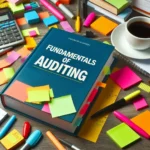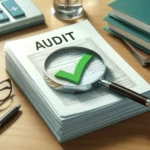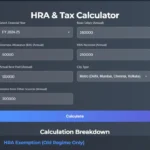Q.no.1. Write about meaning of ethics and need for professional ethics in the profession of audit?
Ethics Means
i. The term “Ethics” means moral principles which govern a person’s behaviour or activity.
ii. It is a state of mind to act and perform in accordance with moral principles.
Need for Professional Ethics:
i. Professional ethics are based on morality.
ii. Professions like law, medicine have their own code of ethics. Auditing profession is no exception.
iii. Society has tremendous trust in services rendered by Chartered Accountants.
iv. A distinguishing feature of the accountancy profession, acceptance of the responsibility to act in the public interest.
v. Professional ethics seek to protect the interests of the profession as a whole
vi. Chartered accountants, either in practice or in service, are required to comply with the provisions of Code of Ethics.
vii. Chartered Accountant, either in practice or in service, expected to follow the fundamental principles of professional ethics while performing their duties.
viii. The Institute of Chartered Accountants of India (ICAI) requires its members to comply with the principles of ethics while performing their duties.
ix. Any deviation from the ethical responsibilities brings the disciplinary action against the Chartered Accountants which may result into fines, suspension of membership, removal from membership or other disciplinary actions.
Q.no.2. Write about principles-based approach vs rules-based approach to ethics (ethical or legal)?
I. Ethical guidance may follow principles-based approach or rules-based approach:
a. Principles-based ethics asks accountants to follow the spirit of ethics and exercise professional judgement in every situation with their Professional knowledge, skill and expertise to arrive conclusions
b. Rules-based ethics follows clearly established rules but may ignore the spirit of ethics and be too rigid for some situations.
II. Therefore, it is necessary that spirit of code is followed.
Q.no.3. What are the fundamental principles of professional ethics?
Professional accountants must behave ethically and follow the below fundamental principles.
I. Integrity:
A professional accountant should be straightforward and honest in all professional or business relationships.
II. Objectivity:
Auditor not to compromise on professional judgment because of bias, or undue influence.
III. Professional Competence and Due care:
- Professional Knowledge
- Professional Skill
- Act Accordance with Professional Care
IV. Confidentiality:
Keep the information confidential that was acquired during professional or business relationships.
However, such confidential information may be disclosed, when it is required by law, when it is permitted by law and is authorized by the client.
V. Professional behaviour:
It requires an accountant to comply with relevant laws and regulations and avoid any conduct which might bring discredit to the profession.
Q.no.4. Write about independence of auditors?
I. Professional integrity and independence are essential characteristics of all the professions.
II. Independence implies that the judgement of a person is not subordinate to the wishes or direction of another person.
III. Independence is state of mind and character of a person.
IV. There are 2 interlinked perspectives of independence of auditors:
A. Independence of mind:
- Integrity
- Objectivity
- Professional skepticism
B. Independence in appearance:
- No Ownership in Client’s Business
- No Relationship with Client and Client’s business.
V. Before taking any work, auditor should check whether he can act independently in the given circumstances.
Q.no.5. Write about threats independence?
It is impossible to define every situation that creates threats to independence.
However, The International Federation of Accountants (IFAC) had identified 5 types of threats:
I. Self-interest threats:
When an auditor benefiting from client in form of financial interest.
Examples:
Share in Company
Loan or guarantee
II. Self-review threats:
When an auditor reviewing the work which was performed by him earlier
Non audit engagement like Management services, Internal audit Service, Investment advisory service etc.
III. Advocacy threats:
when auditor promotes a client’s opinion without any reason.
Examples:
When an auditor becomes the client’s advocate in litigation with third-party disputes.
IV. Familiarity threats: when auditors form relationships with the client where auditor end up being sympathetic to client’s interests.
Examples:
Close relative
V. Intimidation threats:
When auditors are prevented from acting Independently. (Blackmailing or Bribing)
Example:
Threated to Replace the Auditor
Threaten to Reduce the Audit fees
Q.no.6. Write about safeguards to independence?
Responsibility of Chartered Accountant to remain independent
Safeguards guideline for Independence of Auditor.
i. Fundamental principles of Audit
- Integrity,
- Objectivity and
- Professional skepticism, which necessarily require for auditor to be independent.
ii. Before taking on any work, Auditor must consider whether any threats to his independence exist
iii. If threat Exist
- Auditor should take certain precaution (or)
- Auditor should not accept the Audit work
iv. If auditor unable to implement adequate safeguard must withdraw from Audit.
Q.no.7. Write a short note on professional skepticism?
Professional skepticism refers to an attitude of questioning mind.
Professional skepticism means being alert to the following situations:
i. Conflicts between multiple Audit Evidence
ii. Doubt on reliability of audit evidence.
iii. Possibility of fraud.
Maintaining professional skepticism throughout the audit will reduce the risks of:
i. Overlooking.
ii. Over generalizing (Means assuming everything is correct).
PART 2 – SA 210 AGREEING THE TERMS OF AUDIT ENGAGEMENT
Q.no.8. Write about scope and objective of SA 210, agreeing the terms of audit engagements?
SA 210 Scope:
Auditor’s responsibilities in agreeing the terms of the audit engagement with management and those charged with governance.
Preconditions to audit, (Means condition before starting the audit)
What are the Responsibility of Management and Those Charged With Governance.
What are the Responsibility of Auditor.
SA 210 Objective:
i. Objective of auditor is to accept or continue an audit engagement
ii. Preconditions to audit is to confirming that there is common understanding between the auditor and management and, those charged with governance of the terms &conditions of audit engagement.
Q.no.9. What are preconditions for an audit?
As per SA 210 “Agreeing the Terms of Audit Engagements”,
A. Preconditions for an audit or Condition before starting the audit
i. Auditor shall obtain written consent form management to accept & acknowledge the management responsibility related to preparation of the financial statement
ii. This Acceptance and Acknowledge is called letter of Engagement or Premise to Audit
B. Letter of Engagement have following Preconditions:
a. Management Responsibility:
i. To prepare Financial Statement as per Applicable Financial Reporting Framework (AFRFW)
ii. Prepared Financial Statement free from Material misstatement, Frauds & Error.
iii. To design and implement necessary internal control
b. Provide Auditor with:
i. Access to all Information & Documents.
ii. Additional information requested by Auditor
iii. Unrestricted access to persons within the entity
C. If preconditions for an audit are not present:
Auditor shall discuss the matter with management
Auditor shall not accept such audit engagement:
i. If Financial Statement are not prepared on accordance with applicable financial reporting framework
ii. If Management not provide access to all Information & Documents.
iii. If Management not provide Unrestricted access to persons within the entity
D. Limitation on scope prior to audit engagement acceptance:
If management or those charged with governance impose limitation on the scope of the auditor,
Auditor shall not accept such audit engagement:
Because of following Limitation:
I. Auditor not able to obtain sufficient & appropriate Audit Evidence
ii. Auditor not able to obtain reasonable assurance
iii. So, Auditor not able to give opinion.
Q.no.10. Write about agreement on audit engagement terms through an engagement letter?
i. Audit engagement letter is sent by the auditor to his client.
ii. Audit engagement letter must be in writing.
iii. Audit is matter of contract between auditor and client.
iv. Audit engagement letter is must & more important in non-statutory audits
v. Auditor shall agree the terms of the audit engagement with management or those charged with governance.
Contents of Audit engagement letter:
i. Objective & Scope of the audit of financial statements
ii. Responsibilities of the auditor
iii. Responsibilities of management
iv. Reference to applicable financial reporting framework
v. Reference to any reports to be issued by the auditor
O.11. Write a short note on: change in terms of engagement as per SA 210?
Reason to change in term of Audit engagement may be because of:
a. Management misunderstood the Terms of Audit Enagament originally agreed or
b. Management imposed restriction on the scope of Audit engagement
I. Accept the change in terms of Audit Engagement:
a. Situation 1
Client request to change the Terms of Audit Engagement
Check there is => No Limitation on Right, Duties and Scope of Audit
Yes! &
Check there is => Reasonable Justification
Yes!
Accept the change in new terms of engagement in new Audit Engagement letter.
Further, New Audit Engagement would not include reference to:
Original Audit engagement
Any procedures performed in original engagement.
II. Do not Accept the change in terms of Audit Engagement:
a. Situation 2
Client request to change the Terms of Audit Engagement
Check there is => No Limitation on Right, Duties and Scope of Audit
Yes! &
Check there is => Reasonable Justification
No!
Don’t Accept the change in Audit Engagement, withdraw from the audit
b. Situation 3
Client request to change the Terms of Audit Engagement
Check there is => Limitation on Right, Duties and Scope of Audit
Yes!
Don’t Accept the change in Audit Engagement, withdraw from the audit
Q.no.12. What should auditor consider before agreeing to change the audit engagement to the engagement providing lower level of assurance?
Prior to the completion of audit, if management request to change the audit engagement.:
i. If those changes convey lower level of assurance to audit Engagement, then check is there is reasonable justification.
ii. Check the legal and contractual effects for change in audit engagement.
iii. Audit work done so far may still be useful for the new Audit Engagement.
But new engagement report should not mention the original audit work or its procedures, unless they are part of new engagement.
iv. Auditor and Management should write down the new terms of the engagement.
Q.no.13. State the circumstances where sending new engagement letter, would be appropriate in recurring audits?
Initial audit engagement
Means: In case of new appointment of audit, Auditor must issue an engagement letter is known as Initial audit engagement.
Recurring audit:
Means: If auditor of previous year(s) has also been appointed as auditor for current year, then the current year engagement is known as “Recurring audit”.
In case of Recurring audit, New Audit Engagement is not Mandatory,
However, in following situation new audit engagement letter is mandatory for recurring audit
i. Owner, KMP, TCWG Misunderstands the objective & scope of audit.
ii. Change in legal or regulatory requirements.
iii. Change in the Applicable financial reporting framework.
iv. Change in audit reporting requirement.
v. Change in Top management.
vi. Change in Entity name, Operation Size etc.
PART 3 – QUALITY CONTROL
Intro to Audit Quality:
Purpose of an independent audit is to provide confidence to users of audited financial statements.
Therefore, high quality audit is essential to maintain confident to users.
So, Responsibility of auditor to maintain high quality audit.
SQC 1 vs SA 220
SQC 1 and SA 220 both deal with quality control.
Whereas SQC 1 deals with all engagements including audits, reviews, assurance and related service engagements,
But SA 220 deals only with to audit engagements.
SQC 1 applies to entire firm.
But SA 220 applies to particular audit engagement.
SQC 1 Quality control for firms that perform audits and reviews of historical financial information, and other assurance and related services engagements
Scope and objective:
SQC 1
i. To provide reasonable assurance firm should designed and establish a system of quality control
ii. Firm and its personnel should comply with professional standards, Regulatory and Legal requirements
iii. Reports issued by the firm or engagement partners are appropriate
Elements of system of quality control per SQC 1:
Firm’s system of quality control should include policies and procedures addressing each of the following elements:
i. Leadership responsibilities
ii. Ethical requirements
iii. Acceptance and continuance of client relationships
iv. Human resources
v. Engagement performance
vi. Monitoring
A. Leadership Responsibilities
Firm should designed & Establish policies and procedures to promote an internal culture that quality is essential
Firm leaders should be responsible for quality control CEO, MD etc (Set Example from Top Management)
B. Ethical Requirements:
Firm should designed & establish policies and procedures to provide reasonable assurance by comply with Code of ethics issued by ICAI.
Professional ethics which include
i. Objectivity,
ii. Integrity
iii. Confidentiality,
iv. Professional behaviour.
v. Professional competence and due care
– Professional knowledge
– Professional Skill
– Act accordance with Professional Standard
Obtain written confirmation from all firm personnel (staff) to compliance with policies and procedures
C. Acceptance and continuance of client relationships and specific engagements:
Before accepting an engagement, firm should consider following information
i. Check Client’s Integrity (Client means Owner, KMP, TCWG)
ii. Competence to perform Engagement (Whether having necessary Resources & Time)
iii. Compliance with Ethical requirements (Objectivity, Independent)
iv. In case of Existing Engagement
-Check any important matter arisen during previous Engagement.
D. Human Resources:
Firm should designed & establish policies and procedures shall include following personnel (Staff) related issues.
i. Recruitment,
ii. Training
iii. Performance Evaluation
iv. Career Development
v. Compensation,
E. Engagement Performance:
Consistency in quality of engagement performance is achieved through :
i. Complying with engagement standards
ii. Engagement supervision and training,
iii. Methods of reviewing performance of work,
iv. Appropriate documentation of work performed.
I. Consultation:
Consultation means discussion with Experts, within or outside the firm, to resolve a difficult matter.
Firms can use external advisory services if they lack internal resources
II. Engagement Quality Control Review:
Review key judgments before issuing report
Review does not reduce the responsibilities of the engagement partner.
iii. Engagement Documentation:
a. Engagement documentation is the property of the firm.
b. Complete Assembling of engagement files within 60 days of report date
c. Maintain confidentiality, safe custody, integrity, accessibility and retrievability of engagement documentation
d. Retain engagement documentation for at least 7 years from the date of Audit report.
F. Monitoring:
Firm should ensure that policies and procedures relating to quality control are adequate and operating effectively.
SA 220 QUALITY CONTROL FOR AN AUDIT OF FINANCIAL STATEMENTS
Scope and Objective:
As per SA 220 Engagement partner is responsible for quality control of the audit engagement.
As per SA 220, the objective of the auditor is to implement quality control procedures at engagement level that provide reasonable assurance that audit complies with professional standards, legal and regulatory requirements
Responsibilities of engagement partner:
SA 220 is modelled on lines of SQC 1.
i. Leadership responsibilities
ii. Ethical requirements
iii. Acceptance and continuance of client relationships
iv. Assignment of Engagement Teams
v. Engagement performance
vi. Monitoring
A. Leadership Responsibilities:
Engagement partner shall take responsibility for the overall quality on each audit engagement
In order to achieve quality audit:
i. Perform audit work that complies with professional standards, legal and regulatory requirements
ii. Complying with the firm’s Quality Control & Policies
iii. Issuing appropriate audit reports
iv. Ability of engagement team to raise concerns without any fear.
B. Ethical Requirements:
Identifying a threat to independence
If threat Exist => Auditor should take certain precaution (Safeguard)
- Report to relevant person within the Firm
- Withdraw form Audit Engagement if legally permit.
C. Acceptance and Continuance of Client Relationships:
Before accepting an audit engagement, Auditor should consider following information
i. Check Client’s Integrity (Client means Owner, KMP, TCWG)
ii. Competence of Engagement Team (Whether having necessary Resources & Time)
iii. Compliance with Ethical requirements (Objectivity, Independent)
iv. In case of Existing Engagement
-Check any important matter arisen during previous Engagement.
D. Assignment of Engagement Teams:
Engagement partner should ensure engagement team have necessary competence and capabilities to perform audit work with professional standards, legal and regulatory requirements.
E. Engagement Performance:
i. Responsibility of Engagement partner is to direction, supervision and performance of audit engagement in accordance with professional standard, legal and regulatory requirements.
ii. Review audit documentation before issuing the audit report.
ii. EQCR: For audits of financial statements of listed entities, Auditor should determine whether Engagement Quality Control Review is required, If Yes then Check:
a. Check Engagement Quality Control Reviewer has been appointed.
b. Discuss significant matters arising during the audit engagement with Engagement Quality Control Reviewer.
c. Don’t date the auditor’s report until the completion of Engagement Quality Control Review.
d. If different opinion arises between Engagement Team, with Engagement Quality Control Reviewer, then Engagement Team shall follow the firm’s policies and procedures to resolve the opinion.
F. Monitoring:
i. Engagement Partner should ensure that policies and procedures relating to quality control are adequate and operating effectively.
ii. Documentation:
Engagement partner should document following matters related to audit engagement:
a. Issues identified in related to compliance of ethical requirements and how they were resolved.
b. Conclusions on compliance with independence requirements.
c. Conclusions regarding the acceptance and continuance of audit engagements.
d. Nature and scope of, and conclusions resulting from, consultations undertaken during audit engagement.










